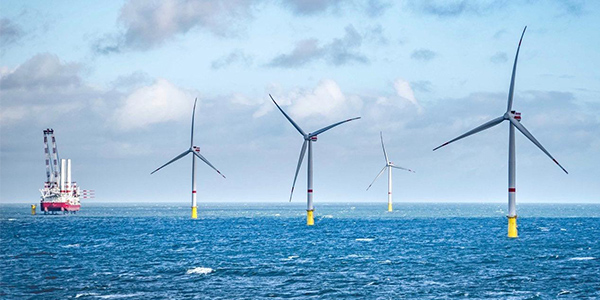By Michael Kuser
Vineyard Wind on Monday filed an emergency motion for FERC to stay ISO-NE’s 13th Forward Capacity Auction, claiming it “will suffer irreparable injury” if it is not afforded renewable technology resource (RTR) status in the auction, which was scheduled to begin the same day the company submitted its request (ER19-570, ER19-444).
Resources obtaining RTR status are exempted from the auction’s minimum offer price rule (MOPR).
The Feb. 4 motion came after the commission failed to act on Vineyard’s Dec. 14 request for waiver of ISO-NE Tariff provisions requiring that the RTR exemption be granted only to resources within the borders of a New England state. FCA 13 covers the capacity commitment period from June 1, 2022, to May 31, 2023.
Commissioners Cheryl LaFleur and Richard Glick issued a joint statement Feb. 4 saying, “We are disappointed that the commission failed to act on Vineyard Wind LLC’s requests for a waiver and emergency motion in advance of ISO New England’s forward capacity auction. We recognize that the commission can move forward only when it has a majority of votes for a particular action. Nevertheless, by failing to act, the commission has introduced significant uncertainty into this auction. All parties, including New England’s states, consumers and auction participants, deserve better.”
Vineyard cited “extraordinary circumstances” in requesting the stay, or in the alternative, that the commission vacate the results of the auction and permit a new auction to occur as soon as practicable after action on the company’s petition.
Bloomberg quoted RTO spokesman Matthew Kakley as saying “The auction is already underway. A delay would be unfair to the hundreds of other market participants.”
The company also requested that “the commission follow the path it used in addressing the requests for declaratory order in advance of the expected bankruptcy filing of Pacific Gas and Electric Co. and establish a one-day comment period and issue an order on the merits promptly thereafter.” (See FERC Claims Authority over PG&E Contracts in Bankruptcy.)
A joint venture by Iberdrola and Copenhagen Infrastructure Partners, Vineyard last May won a contract to supply Massachusetts with 800 MW of offshore wind energy, and in December won another lease area off Martha’s Vineyard in an auction conducted by the Bureau of Ocean Energy Management. (See Mass. Offshore Lease Auction Nets Record $405 Million.)
‘Plain Vanilla’
In a Jan. 29 order, the commission accepted the RTO’s Tariff revisions to support implementation of the Competitive Auctions with Sponsored Policy Resources (CASPR) rules, which the commission accepted in March 2018 (ER19-444). (See related story, FERC Clarifies ISO-NE Generator Delist Bid Rights.)
But in a partial dissent, Glick said the RTO adopted a “confounding interpretation of what qualifies as a state-sponsored resource” by concluding that an offshore wind facility procured in a state solicitation does not qualify as a state-sponsored resource for the purpose of the RTR exemption to the MOPR, which CASPR retained as a transition mechanism to the fully fledged substitution auction.
In comments filed Jan. 4, the RTO said it “does not oppose” Vineyard’s request for waiver, noting that it adopts the approach outlined in the filed Tariff revisions, including the request that, if the RTR cap is reached, the proration provisions will only apply to resources that, similar to Vineyard, seek RTR treatment under revised rules.
Vineyard said it filed its original waiver request “in good faith” in accordance with longstanding FERC processes.
“The timing of the petition was well within the commission’s accepted time frames,” the company said. “Market participants rely on FERC to address this type of plain vanilla filing … on the merits and in a timely fashion. Up until now, the commission has always done so. In Vineyard Wind’s understanding, this situation is unprecedented.”
The Massachusetts Department of Energy Resources on Feb. 1 filed comments supporting Vineyard’s original petition, saying that the company’s contracts with it “represent over a year’s worth of collaboration and consultation” and are “a significant milestone” in the state’s “transition to a clean, diversified energy portfolio.”
Gov. Charlie Baker also sent a letter last week asking the commission to approve Vineyard’s request for a limited Tariff waiver, reiterating the department’s point that “the total direct and indirect benefits to Massachusetts ratepayers from the long-term contracts with Vineyard Wind are expected to be approximately $1.4 billion.”





